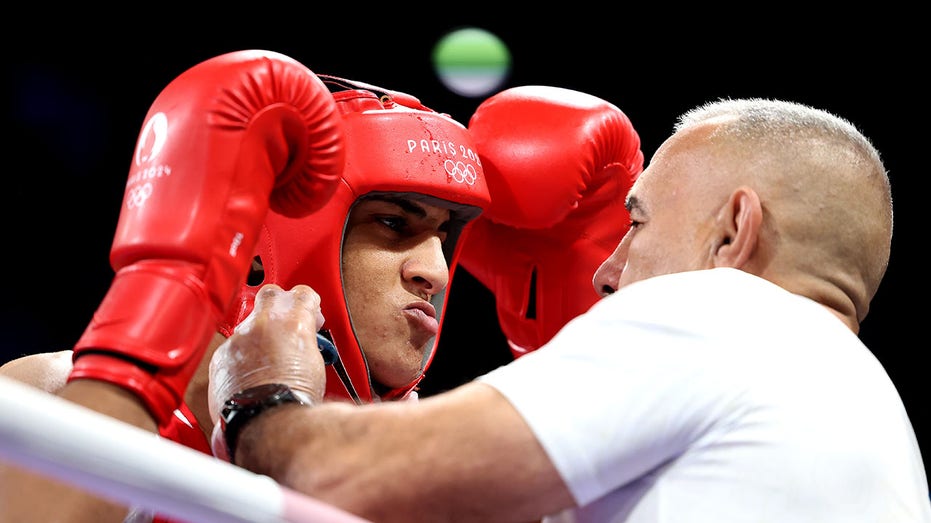'We haven't done that much': Former Estonia head says US fears of escalation with Putin are unwarranted
As U.S. support for aiding Ukraine fractures Americans, former Estonian President Kersti Kaljulaid is here to remind Americans what’s at stake.

As U.S. support for aiding Ukraine continues to fracture Americans, Kersti Kaljulaid, the former president of Estonia, wants to remind Americans what’s at stake.
Estonia, a country in Northern Europe bordered by the Baltic Sea and the Gulf of Finland, is slightly larger than Denmark and has a coastline with 1,521 islands.
Kaljulaid described what's happening across the world as a "tectonic shift," during a recent interview with Fox News Digital at her nation’s embassy in Washington, D.C. "There is the freedom-loving world. And then there are the others – the new Axis of Evil – China, Iran, North Korea, Russia. China is leading that coalition."
"Ukraine, with its brave action, has offered us the opportunity to score the first victory in this battle, and I think we should not miss it," she said.
And the cost of securing the so-called "freedom-loving world" is relatively little, she argues.
"It's very important to understand that Ukrainians are dying, but we, the West, have not spent anything close to what normally needs to be spent to win war. We are spending at the rate of 0.1% of GDP. And frankly speaking, if we could spend 0.5, then Ukraine will win, and it would be first time in history where a major conflict can be actually be won with so little resources."
Her visit came just after Ukrainian President Volodymyr Zelenskyy visited the U.S., causing a stir among Republicans after he visited Pennsylvania – swing state – with only Democratic lawmakers and called Sen. JD Vance "too radical."
UKRAINIAN STRONGHOLD VUHLEDAR FALLS TO RUSSIAN OFFENSIVE
He was here to beg for the U.S.'s blessing to use the long-range missiles it provides to strike deep inside Russian territory. So far, his pleas have gone unanswered. The Biden administration fears provoking nuclear-armed Russia and furthering U.S. involvement in the war.
"I think the Ukrainian incursion into Kursk Oblast has demonstrated to us that the Russian threats [of escalation], they carry no value," Kaljulaid said.
In August, Ukrainian troops made a risky move, invading Kursk Oblast and taking over the Russian territory, using their best tanks in the offensive, which left several key villages and towns along the southern and eastern front lines for Russia’s taking.
Kaljulaid said she supports Zelenskyy’s request to lift restrictions on the ATACMs, pointing out that Ukraine already uses these weapons to strike in Crimea, which Russia views as its territory.
LITHUANIAN FM WARNS RUSSIA CAN DO 'SO MUCH DAMAGE TO ITS NEIGHBORS'
"You could say, I mean, paradoxically, there is nothing new."
"Putin is not playing the old Cold War game where one side escalated, then the other side did, and then everybody sat down and negotiated the levels down again. I mean, Putin's regime is a terrorist regime."
She went on: "It doesn't abide by any rules. All the bridges are burned. So when they decide it's worth escalating, they will decide anyway, but we should do the right thing and not worry about escalation."
A University of Maryland Critical Issues Poll conducted in July and August found 48% of Americans say the U.S. should support Ukraine in its fight against Russia's incursion "as long as it takes." Thirty-nine percent said support should last 1-2 years and another 11% thought it should last 2-5 years.
The U.S. has spent around $175 billion aiding the war in Ukraine, $106 billion of which went directly to the government of Ukraine. The rest funded U.S. activities associated with the war and other affected nations in the region.
"This is about a third of the money which is considered waste in the COVID pandemic spending [in the U.S.]"
"If we compare it to our economic might of the free world, then we haven't done that much," said Kaljulaid.
"Europeans are doing even more. And this is a common error as well, to think that Europe is not doing its part. Europe's doing even more than us right now, and I would really like to have a healthy competition. Who does more?"
The U.S. has given more money to Ukraine since the outbreak of war, followed by Germany, the U.K., Japan, and Canada. As a percentage of their GDP, Denmark, Estonia and Lithuania topped the ranking, with 1.8, 1.7, and 1.4%, respectively.
Kaljulaid declined to say whether relations would become more difficult under a second Trump presidency – Trump has spoken out against aiding Ukraine and claimed he could negotiate peace with Zelenskyy and Putin.
In fact, she had an optimistic outlook that Trump could come to support Eastern Europe if elected to a second term, just as she said he did in his first term.
"Eastern Europe had quite a big presence. Trump visited Poland, [former Vice President] Mike Pence visited Talinn [Estonia’s capital]."
She noted Trump’s work on the Three Seas Initiative and actions to end Syria’s chemical weapons attacks on its civilians.
"That was not a simple thing. It was a quite courageous thing, and it was exactly what you expect from Republican foreign policy of the United States – to defend the free world."

